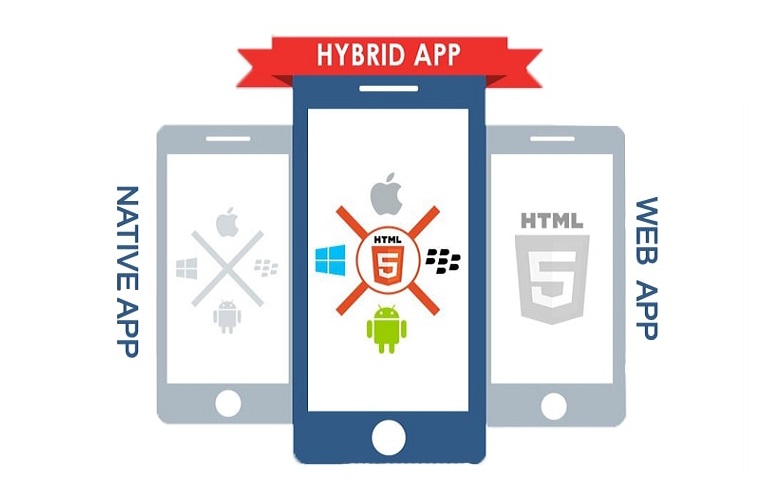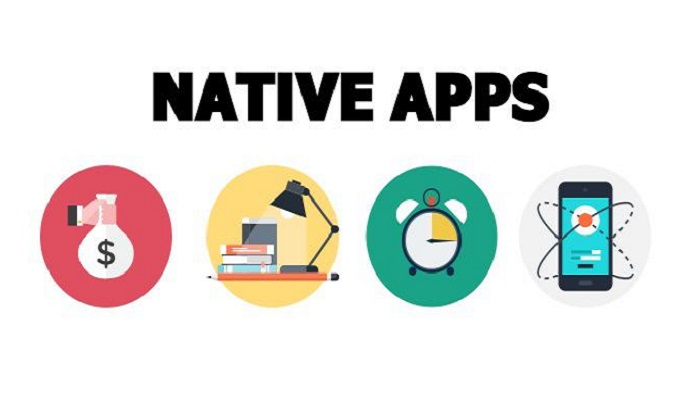App development is the process of programming of a mobile application. This process goes through many steps before reaching the final product, which we know as smartphone apps. The development process requires different types of planning. The planning includes the UI and UX design, the purpose of the application, and the kind of development.
Since the type of development is the first and most important aspect, it requires intelligent comprehension of each of the specific app types. These types are Hybrid, Native, and Web apps. The difference between these types also distinguishes their planning process, including the UI. Let us dive right into what makes this app types different and what are their aspects.
Table of Contents
Hybrid
Hybrid applications look just the same as native when it comes to installation or download. However, web browsers operate their core process. The development of hybrid applications conducts using HTML5 as its primary programming language. Because of its flexibility and cross-platform support, many platforms and devices support hybrid apps.
Additionally, they save developers the hassle to build an app separately for different platforms. As a result, hybrid app development saves time and resources. Which is why hybrid apps prove very flowing, because of their streamline development stages. This is what makes hybrid applications an ideal solution for content delivery — specifically ads or digital marketing content.
However, their only downside is they are not as good at operating and in speed as native applications. Additionally, reliability might be an issue as well. Considering platforms are ever-changing and evolving, it may provide additional challenges to its maintenance.
Native
Native applications are specifically designed for one platform or device, hence their name. Which is what makes them faster and reliable compared to their counterpart. Whether its Google’s Android or Apple’s iOS, the development requires a critical understanding of their respective languages.
For example:
Flutter:
This is a mobile app SDK from Google, and Flutter app development cost is not so high, you can develop this easily.
Because of their platform-exclusive development, it makes native applications operate swiftly and naturally. Additionally, their support and maintenance do not require much work, as platforms tend to cater to demands built for them. You would utilize this type if you were to understand how to create an android app like Uber. Additionally, compared to Hybrid, it allows much better optimization.
However, the downside of native app development is that it requires expertise in development language, Therefore, native applications are both robust to make and expensive to buy\get developed.
Web Apps
Web applications are websites that are designed to adapt according to the platform. For example, a site that looks different on a computer compared to a phone is a responsive web application. Their design allows them to switch to a specific platform’s likenesses. Additionally, their design remains constant.
The development of web applications is conducted with many popular programming languages. Their downside, however, is that they cannot utilize any hardware on mobile phones. Besides, their type disables their selling in any application store.
Types Of Development Frameworks
The development of hybrid, native, or web applications require frameworks. Here is a list of a few of them.
- Apache Cordova or Adobe PhoneGap is a development framework, which Nitobi owned initially been. However, Adobe Systems acquired the rights of the whole operation in 2011.
- Xamarin is a Microsoft owned entity, which delivers native applications for all platforms. It is known for its flexibility in Android, iOS, and even Windows apps.
- Appery.io, the cloud-based platform, provides tools for visual development, as well as essential backend services.
Conclusion
All these types of app development have one thing in common: to serve the current application market according to the platform’s demand. Therefore, it is essential to understand each platform, regardless of the type of application development you lean toward. Not only will that help you understand these types better, but it will also prove vital in the actual programming process. In conclusion, a keen understanding of programming languages along with their platforms is required. Whether it is native or hybrid, an application is built to serve its type or category, which is why one must ensure its performance and adaptability.



